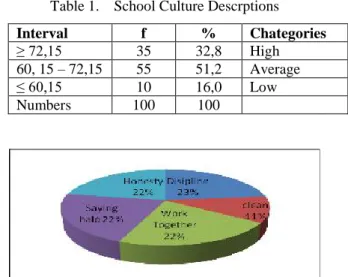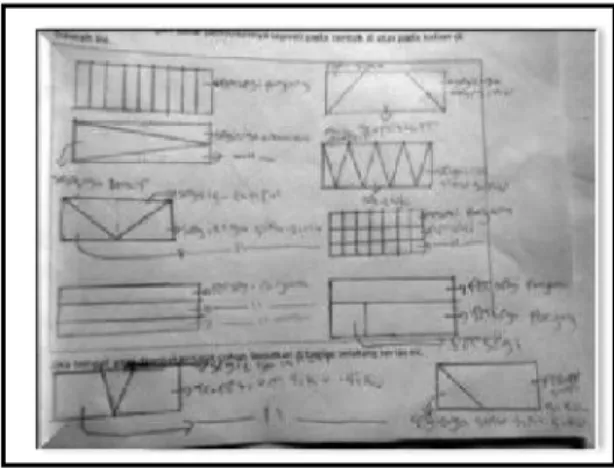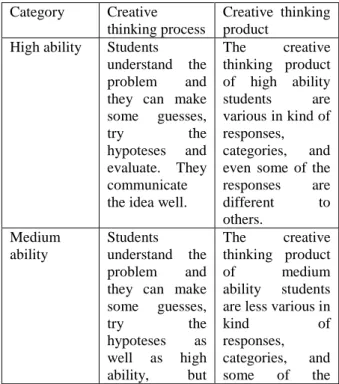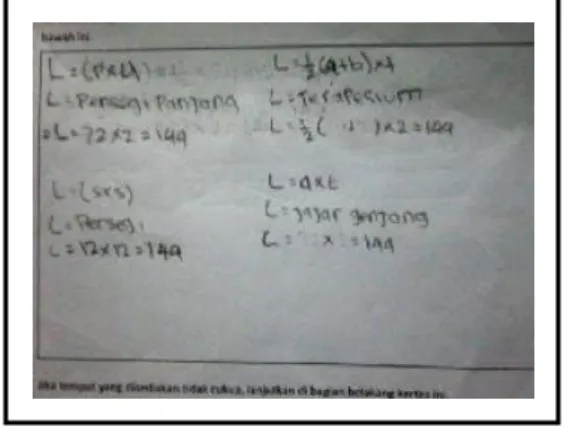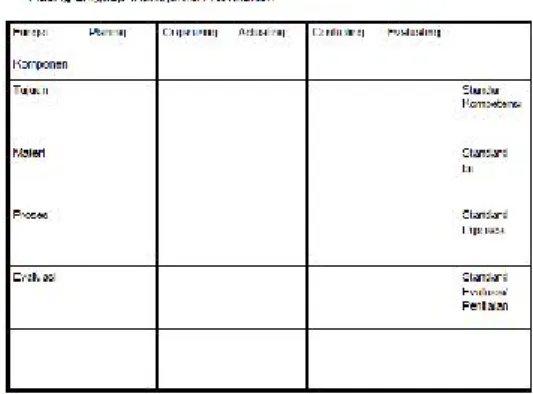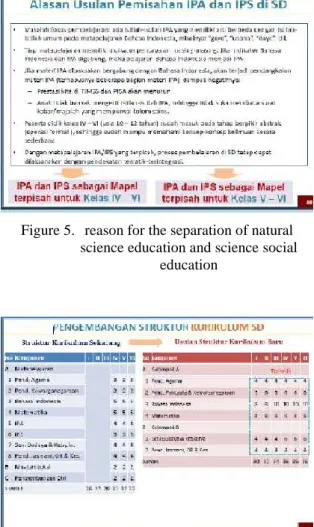Some Notes on Curriculum Development for Primary School Education (Strategy for Planning, Development and Implementation of Curriculum for Primary School Education). Learning by Love for Character Building in the First Level Student of Primary Education Nelva Rolina.
Empowering Primary Education for a Brighter Generation International Seminar on Primary Education
Yogyakarta State University Indonesia
But primary education in New Zealand has undergone substantial changes, just as this conference suggests Indonesian primary education needs to change. There are so many more adult PhDs enrolled and their families in New Zealand schools.
OPPORTUNITIES AND CHALLENGES FOR PRIMARY EDUCATION IN INDONESIA
- Introduction
- Universal Primary Education: The Bedrock for Higher Education
- Education in Indonesia
- Teachers make difference
- Importance of quality teachers
- Teacher training
- Improving teaching-learning process As the social and economic demands for
- Calibrated educational leadership
- Some High Performing Education Systems The countries which have demonstrated
- Australia
- Singapore
- Facing the Challenges
- Addressing the issue of equity
- Improving teacher training and quality of teachers
- Approaches to teaching
- Lack of teaching resources
- Standard Tests
- School autonomy
- Summary
- Conclusions
Compared to some neighboring countries, Indonesia's human resources are still underdeveloped. To improve the quality of education, well-trained, highly motivated and committed teachers are a prerequisite, as some of the most successful countries have shown.
SOME NOTES ON CURRICULUM DEVELOPMENT FOR PRIMARY EDUCATION
A Strategy For Planning, Development, And Implementation Of Primary Education Curriculum)
Planning stage of curriculum development A pioneer of rational model of curriculum
Realms of meaning that underlie the stage of world civilization with which the learners end up living. To understand that there are six areas of meaning, it is important to be able to distinguish the function of a subject rooted in certain scientific discipline from the other and its implication on the type of learning process.
The Development of Learning Model
This pillar of learning introduced by UNESCO is essentially related to the learning of cultivated or internalized scientific attitudes and scientific competence. From this position, the writer believes that it is difficult for the school to function as a center of culturization unless "the pillar of learning" is implemented.
Evaluation System and Educational Resources as Integral Part of Curriculum
From two previous quotations it is clear what this means by getting to know. It is clear that through the implementation of the first three pillars of the learning process experienced will finally achieve the goal of education, that is the learning to be.
The Primary Education Betterment Policy, Uncertain To Go: Indonesian Cases
- Making assumptions explicit
- School Effectiveness versus School Improvement Movement
- Communications and Works Together Between School Effectiveness and School
- Developing Primary School Improvement Strategies
A homogeneous quality improvement policy should be avoided, replaced by quality policies that match the different conditions of the primary school. Without knowing, surely, the right problems of primary education would not have right answers.
SOCIOCULTURAL BASED THEMATIC-INTEGRATIVE TEACHING AND LEARNING MODEL FOR ELEMENTARY SCHOOLS
DISCUSSION
- The concept of thematic-Integrative Learning
- Benefits of Integrative Thematic- Learning Thematic learning as part of an integrated
- The steps of Thematic-integrative Learning In applying the thematic-integrative learning,
- Planning Phase
- Implementation stage
- Evaluation stage
- Implications of Thematic- Learning Integrative
- Teacher Existence
- Student knowledge
- The Needs of Instructional Materials, Infrastructure Support, Learning
- Room Arrangement Model
- Methods Selection Strategy
- Sociocultural -based Thematic-Integrative Learning
- Curriculum
- Students
- Teacher
The planning phase is the beginning of the process in designing the thematic model of the lesson. In the implementation of thematic learning activities, adjustments should be made so that a fun learning atmosphere.
Conclusion
Especially for Indonesian education, the enforcement of the curriculum according to Regulation No. 24 of 2006 on the implementation of KTSP, Ministerial Decree No. Therefore, knowledge, skills, values and attitudes are not something that is verbal, but the child has the learning directly.
A BRIGHTER GENERATION IN A NEW LIGHT
- Bronfenbrenner’s bioecological systems theory
- Globalisation
- The testing culture
- One such example is Finland
- Consensus and consistency
- The Finnish Education system
- In summary
- An Indonesian brighter generation
- Reform implementation
- Assessment
- Professional identity
- In summary
- In conclusion
In the 1960s, the Finnish president asked if the country had "the patience it will take to get rich" (Fellman, 2008, p. 175). The McKinsey report states that “the quality of an education system cannot exceed the quality of.
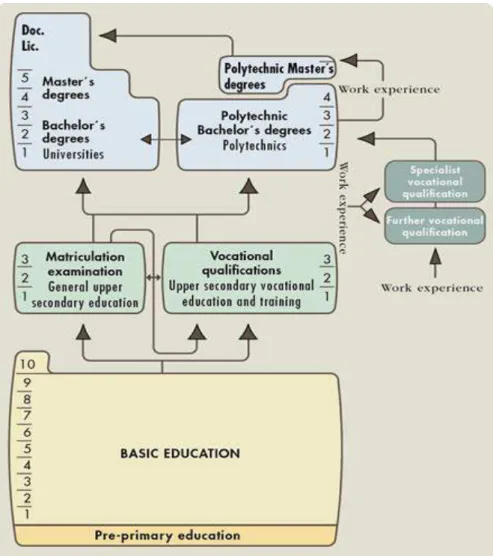
BUILDING "SELF CONCEPT" PGSD STUDENT THROUGH EXPERIENCE LEARNING THEORY (ELT)
DISCUSSION 1 Self concept
- Self Concept of Prospective Educators that Implied in Educator Competence
- Pedagogical competence
- Personal Competence
- Social Competence
- Professional Competence
- Experiential Learning Theory
The self-image of the PGSD student, which is implicit in the four basic competencies of the educator. Self-esteem training materials are materials that aim to develop better cognitive, emotional, and cognitive skills.
CONCLUSION
The self-concept of NGSD students implicit in four basic skills of an educator include pedagogical, professional, social and personality competence. The self-concept of NGSD students can be improved by intervention techniques experiential learning theory (ELT) model of David Kolb (1984) through four stages: concrete experience, reflection, conceptualization / abstract thinking and the application / implementation.
CREATIVE SPORTS EDUCATION FOUNDATION
- Play
- Creativity
- Creativity Sports
- Conclusion
The child's abilities were always the same requiring them to excel in many areas at the same time. However, it is often said that once the child enters elementary school, the child's creativity diminishes.
AN ANALYSIS OF STUDENTS’ CREATIVE THINKING PROCESS AND ABILITY IN MATHEMATICS
THROUGH OPEN-ENDED TASKS
- Research Method
- Result
- Conclusion and Discussion
- Future Works
The products of creative thinking of students with low abilities are less varied according to answers, categories and answers are too common. We can also explore and analyze students' creative thinking using a specific task or test.
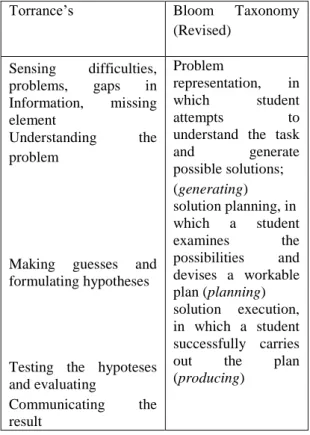
YOREMES OF SINALOA AND THEIR INCLUSION TO THE INFORMATION SOCIETY
- Socio-inter-culturally
- Ethno region Yoreme Mayo and information society
- Ethno-region Yoreme
- The rhetoric of the information
- Dimensions in the rhetoric of the information Countless rhetorical dimensions of
- The information society
- Adoption and adaptation of ICT by yoreme In themselves yoremes communities are not a
- An intra-cultural relationship’s media
- A means of intercultural relations with all their problems of acculturation, and other
- In conclusion
With the development of epistemological currents, the daily use of the information is interwoven with complexities and has sparked debates since its conceptualization. It is important to also remember, for example, the utility of the Internet in the Zapatista army movement.
INVESTMENT POLICIES IN THE IMPLEMENTATION OF THE NATIONAL CHARACTER VALUE OF INDONESIA;
REVIEW BEFORE APPLICATION OF CURRICULUM 2013
- Research Methods
- The Indonesian Education System Policy Ideally the implementation of the education
- Structured Curriculum and the Hidden Curriculum
- Reasons Underlying Changes in the Curriculum in Rrimary Schools
- Textbooks as Teaching Materials
- Conclusion
The content or content of the curriculum is a competence expressed in the form of Core Competence (CI) subjects and further detailed in the Basic Competence (KD). Some of the competencies required according to the development needs (eg character education, active learning methodology, the balance of soft skills and hard skills, entrepreneurship) are not accommodated in the curriculum.
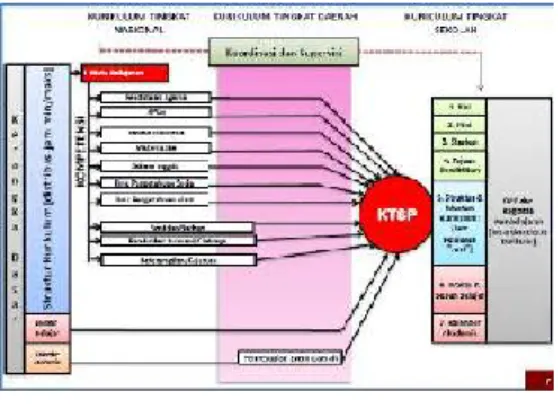
STRATEGIC MANAGEMENT IN BASIC EDUCATION INSTITUTIONS IN MEXICO
- Conceptual and theoretical framework The resource-based theory of the firm is a
- The characteristics of educational management are
- Research methods
- Application of the theory to the case
- Conclusions and recommendations
Strategic management in education is a tool to support quality improvement in primary education institutions in Mexico. The purpose of using a model of strategic management in education is that every teacher, manager and staff member working in primary education institutions in Mexico is committed to quality education.

THE STRATEGY OF EDUCATIONAL MANAGEMENT FOR ELEMENTARY SCHOOL OF ORANG RIMBA THROUGH
EDUCATION BASED ON LOCAL CULTURE
Discussion
The empowerment of Orang Rimba at Air Hitam did not specifically focus on their needs. The conditions on the ground in the provision of education for Orang Rimba's children are mixed with the schools in the nearby villages.
GENISIS OF EDUCATION AND PRIMARY EDUCATIONAL SYSTEM AND EDUCATIONAL POLICY IN INDIA
Saravanakumar
Abstract
Education Policy
Strengthening the base of the pyramid of the Indian population for the proper development of the education system in India. National Policy of Education (1992) established many objectives for the development of the education system in India, but failed to achieve all of them.
DEVELOPING CULTURAL COMPETENCE
IN THE POLICY OF PRIMARY EDUCATION DECENTRALIZATION
There is still no optimal involvement of the stakeholders in the improvement of primary education quality in local government;. Decentralized policy of primary education failed to overcome the education problem in primary school.
MAINSTREAMING OF SCHOOL-BASED MANAGEMENT AT ELEMENTARY SCHOOL TEACHER EDUCATION STUDIES
PROGRAM (MBS-PGSD) OPEN UNIVERSITY
- Research Objectives
- School Management Itself
- The Essence Based management School Mallen, Ogawa, and Kranz (within Abu-
- Research Methods
- Gap Analysis
- Curriculum Adjustment
- Findings and Results Discussion
- Implementation Transparency Distribution Management School
- Implementation Cooperation Inter-Residents School
- Implementation of School Autonomy/ Independence School
- Implementation of Accountability Program
- Conclusion
Based on the direction of the school and the direction aspects of the performance of the mechanism in the school. Working with school guidelines that can be used as partners in the implementation of the three pillars of MBS.

REFLECTIONS ON THE NEW PARADIGM IN EDUCATION AND ITS POST-REFORMATION SYSTEM AND PRAXIS
INVESTIGATION ON ELEMENTARY EDUCATION IN SALATIGA
Research Results and Discussion
Results of the questionnaires indicate patterns and varieties of the principal's role in improving school quality. Compared to the principal's role at the state school, that at the private school is stronger in the aspect of strategies, tactics, or.
Conclusion
If the granting of autonomy to the school and the principal is not accompanied by sufficient development of the principal's capacity, the new roles will become an additional burden for the principal. Therefore, giving greater autonomy to principals accompanied by the development of their leadership or management capacity becomes one of the absolutely necessary solutions.
IMPROVING TEACHING SKILLS FOR STUDENT OF PRIMARY TEACHER EDUCATION PROGRAM THROUGH SUPERVISION
DURING FIELD TEACHING EXPERIENCE PRACTICE
Problem
Students who follow Practice in Field Teaching (PPL) are not subject to a coaching supervision process that is efficient and practical by supervisors and mentor teachers. How they develop planning and implementation control as a tool in the process of implementing effective and practical practice in the field.
Discussion
Of phenomena must be developed Design Supervision and implementation of Supervision as a means (tool) in the guardianship of Field Experience Practice (PPL) Students can be a part that can drive and make it easier for students who carry out PPL. Therefore, since the S1 PGSD can work well to produce quality graduates who are competent, it is necessary to develop appropriate curriculum and devices.
Literature
- The foundation of Field Experience Program
- Definition
- basic
- The Objectives of Field Experience Practice General purpose of the Field Experience
For this, it must be designed in such a way that it is able to bridge the development activities in the primary school with the campuses in the special world of PGSD. Therefore, an optimization of the control program is expected; empower participating teachers and university supervisors;
TEACHERS’ CONFIDENCE AND PREPAREDNESS IN TEACHING SCIENCE IN THE PRIMARY SCHOOLS
Method
- Questionnaire
This indicates that teachers were more confident in teaching science at the lower levels than at those. The preparation of teachers in the teaching of different subjects/topics in the elementary science curriculum in subjects of different levels of the year/.
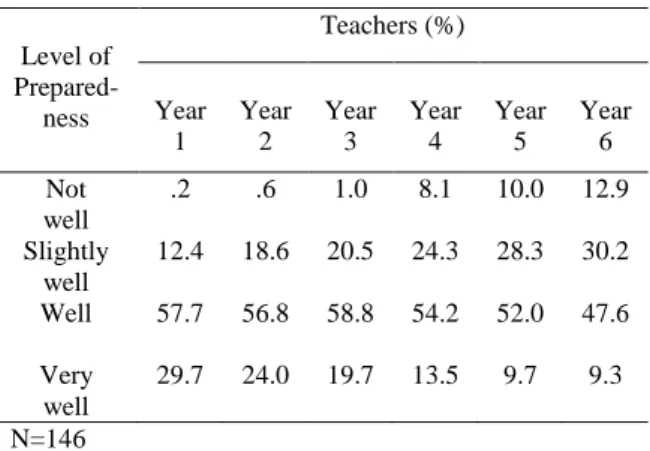
Implications
As Caillods, Gottelmann-Duret and Lewin (1996, p.60) argued "How teachers teach is a function of the adequacy of their knowledge of science and the sophistication of their conceptions of science constructs; it also depends on their interpersonal skills with the students, their pedagogical skills, the leadership they receive and the learning culture in the schools.” Therefore, the key to improving the quality of science education is to improve the quality of primary school teachers, because they are the ones responsible for implementing the new curricula and initiatives set out in the reform agenda.Developing motivation to teach elementary science: The impact of collaborative and authentic learning practices in early childhood education." Journal of Science Teacher Education.
MODIFICATION OF THE PRIMARY LEVEL CURRICULUM FOR CHILDREN WITH MENTAL BARRIERS
Educational Objectives for Children Mental Retardation
This condition also provides basic guidelines for educational programs to minimize the limitations of children with mental retardation. This is how mentally retarded children are taught to try to adapt and survive in the social order in their environment.
Modification Model Curriculum for Children's Mental Retardation
Based on the purpose of educating children and mentally retarded children and this condition, a curriculum based on developing academic skills or subjects was found to be appropriate. The school for mentally retarded children functions more like a social rehabilitation institution to prepare children for life in the community.
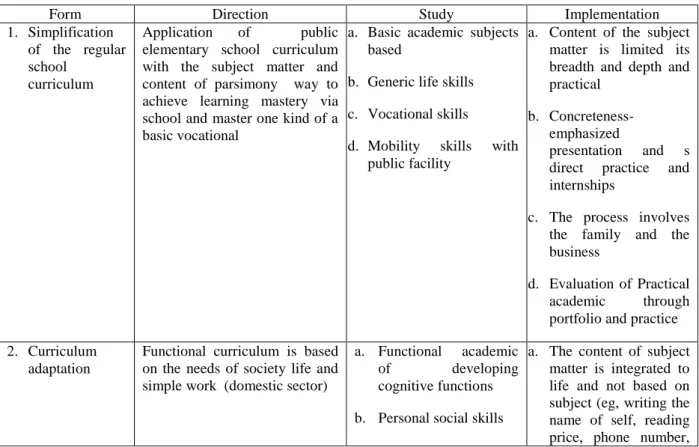
Closing
Involvement of family, community and the world of industry is imperative for the implementation of curriculum changes. curriculum adaptation as one of the effective alternative education services for children with learning disabilities. All this can be done if there is a general perception about education for children with mental barriers.
RAISING SENSE OF BELONGING TO YOGYAKARTA CULTURE
Through Seven C’s Cycle learning process in Tarbiyah Project Curriculum
Tarbiyah Project Curriculum
The curriculum of the Tarbiyah project allows for the integration of learning across subjects in the holistic contextual approach. In addition to being integrated, activity in the contemplation stage also allows exploring the process of critical thinking to solve problems and complete the project as a form of problem-solving and project-based learning.
Integrated Learning Model in Tarbiyah Project Curriculum
This stage is essentially intellectual in nature and focuses on the logical (cognitive) dimension of learning. This stage is social in nature and focuses on the kinesthetic (doing) dimension of learning.
Raising Sense of Belonging to Yogyakarta Culture
This stage is essentially moral in nature and draws on the intrapersonal dimension of the learner. Mini exhibition is done so that the child can implement the understanding they have in the form of an exhibition of the works.
JOYFUL LEARNING IN PRIMARY EDUCATION : IDEAS FOR BANGLADESHI PRIMARY SCHOOL LEADER
- Methodology
- Findings and Ideas
- Short description of Gajhawong School in Yogyakarta
- Challenges for Bangladeshi primary school leaders
- Conclusion and Recommendation
- Recommendation for Remote areas, Village and Government Primary School Leaders
- Conclusion
However, Bangladeshi school leaders can also arrange some role playing activities in their schools to create a joyful learning environment. However, Bangladesh school leaders need a computer and a projector to make the joyful learning environment in primary school.
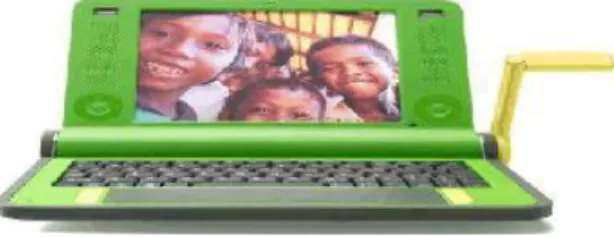
MANAGEMENT OF PRIMARY EDUCATION CURRICULUM DEVELOPMENT BASED ON SOFT SKILL
Results and Discussion
In curriculum development in primary schools, the implementation is focused on curriculum development, RPP (lesson plan) and the learning process. In the development of the curriculum, soft skills in communication and creative thinking not Haiden curriculum, but as an instrument or method, so that students unconsciously had soft expectations of skills.
Conclusion and Suggestions
Implementation of micro-development curriculum started in the development of curriculum, RPP, learning process and evaluation. The ability to communicate and critical thinking as a method and instrument for learning with an emphasis on assessment of the oral test and portfolio.
THREE BASIC PRINCIPLES FOR
CREATING A ENJOYFULL LEARNING IN PRIMARY EDUCATION
- Enjoyed learning
- Theoretical Model of Learning Enjoyment Theoretical Model of Enjoyment Learning,
- Individualized and differentiated learning According to the cognitive paradigm,
- Tutoring and Mentoring
- Conclusion
- Implementation analysis of leraning Models in Shaping Character In Primary School
- Results of South Konawe Sample A
- Result of North Buton Regency Sample A
- Result of Muna regency Sample A
- Result of Kendari City Sample A
- Conclusions and Recommendations 1 Conclusions
- Recommendation
Pleasure in this sense is the state of the environment (factors outside themselves) that can lead to a feeling of enjoyment. Disintegration of the nation's morals and personalities affecting the child's mental and personality led to the disintegration of the child's character.
COOPERATIVE LEARNING FOR ELEMENTARY SCHOOL
Cooperative Learning for Primary School Children
But through cooperative learning, children are expected to feel safe and learn to respect others and help their friends. Therefore, cooperative learning is a learning model that develops with individualism and competitive nature in the atmosphere of education.
Implementation of cooperative learning in primary schools
Cooperative learning is learning that is cooperative, meaning that the success of one person is due to other people's success. Preparation of the pre-learning to do the teacher is the choice of methods, techniques and cooperative learning structures.
INCORPORATING TECHNOLOGY IN PRIMARY CLASSROOMS
PERSONALISED LEARNING CATERS FOR STUDENTS’ SUCCESS
- Introduction 1 Participants
- Rationale for Primary ICT as a Personalised Learning
- Engage
- Explore
- Explain
- Elaborate
- Evaluate
- Teaching Practices and Pedagogical Strategies
- Personalised Learning Framework and Action Cycle of Targeted Intervention
- Incorporating Action Cycle of Targeted Intervention
- for his animation
- Evaluation and Recommendation
Taking the students' interests into account, I led a discussion about the animation process and offered two options for the students to choose to learn in their next ICT sessions: Creating interactive stories or creating animation. Providing opportunities for students to interact in the modeling session ensured active engagement and provided information about the students' needs in order to successfully complete the activity.
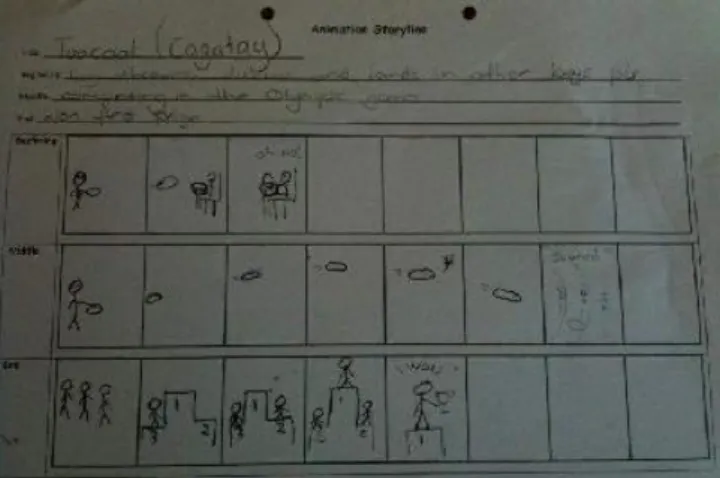
IMPROVING MATHEMATICS SKILL IN EARLY AGE OF ELEMENTARY SCHOOL THROUGH TRADITIONAL GAME
LURAH-LURAHAN”
Other tool used is chalk or marker which is used to make line as the edge of the game. The winner of the game is he or she who can reach the highest point based on the first agreement.

MANY ALTERNATIVES TO MAKE JOYFUL, INTERESTING AND MEANINGFUL PRIMARY EDUCATION LEARNING
Aim of Education
- Curriculum and Syllabus
- Teaching Methodology
I believe that proper education would help to instill a sense of dignity and self-respect among students. I do not advocate traditional teaching methods and prefer learning by doing, and self-observation and self-observation outside the classroom are equally important for students.
EMPOWERING MEANINGFUL LEARNING THROUGH ONLINE COLLABORATION
- Online Collaboration
- Research on collaborative learning
- Power of Online Collaboration
- How to empower collaboration in School After realizing the power of collaboration in this
- Web 2.0 as collaboration tool
- How to maintain online collaboration activities
- Conclusion
This is a fun and powerful tool that students can use to communicate with other people in different parts of the world through voice and text. Wikis and blogs are other common tools that students can use to collaborate in writing.
PLAY METHOD AND MATCHSTICK MEDIA ROMAN NUMERAL IN MATHEMATICS LEARNING
FOURTH GRADE ELEMENTARY SCHOOL
Entry can be made by looking at the use of the roman numeral lambangan. The purpose of the presentation is for students to know the use of Roman numeral concrete.
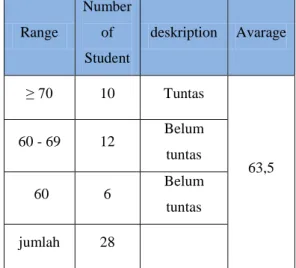
School Culture
The concept of school culture is essentially an attempt to provide guidance on the effectiveness of the learning environment. Individuals who are citizens of the school consisting of students, teachers, non-teaching specialists and administrative staff.
Development of School Culture
- culture of honesty
- culture of trust
- cultural cooperation
- culture of reading
- disciplined and efficient culture
- Clean culture
- culture of reward and reprimand
The shape effect of school culture on students' moral intelligence can be described by the regression equation Y X. Massive contribution to school culture affects students' moral intelligence by 37.4% with the regression equation Y X.
